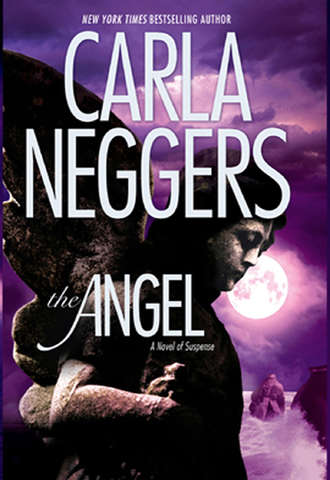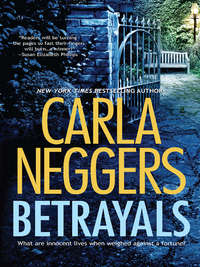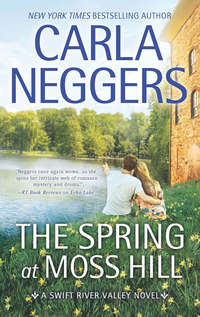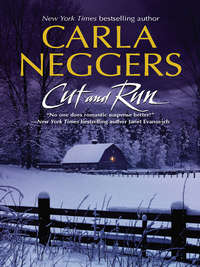
Полная версия
The Angel
Abigail stopped pacing, grateful, at least, that she’d worn flats to tonight’s reception. Trees, flowers and grass were still dripping from the downpour. Most likely, it had been raining, and raining hard, when Victor Sarakis ended up in the water. The medical examiner had already removed the body for an autopsy. Anything was possible. Heart attack, stroke, an unfortunate slip in the heavy rain.
Pushed, tripped, hit on the back of the head.
Abigail wasn’t ready to jump to any conclusions.
She glanced sideways at Bob O’Reilly, who’d decided, on his own, to interview the two students. Reinterview, Abigail thought, irritated. The responding officers had talked to the students. She’d talked to them. Now Bob was talking to them. For no good reason, either, except that he was a senior detective with decades of experience on her and presumably knew what he was doing. But she wished he’d go back up to Beacon Street and listen to his daughter play Irish music.
The students—summer engineering students from the Midwest—looked worn out. They could have gone back to their dorm a long time ago—they just didn’t.
They’d told Bob the same story, about cutting through the Public Garden from a bookstore on Newbury Street, hoping to beat the storm and get to a friend’s apartment on Cambridge Street. When the skies opened up on them, they debated going back to the bookstore or pushing on to their friend’s place.
Then they’d spotted a body in the pond.
“You could tell he was dead by looking at him?” Bob gave them one of his trademark skeptical snorts. “How?”
“I don’t know,” the thinner of the two students said. He had a scraggly beard and was shivering as his wet clothes dried in the breeze. “It was obvious.”
“He didn’t look like he’d been in the water that long,” his friend said. He was meatier, and he’d gotten just as wet, but he wasn’t shivering.
“Long enough,” Bob said.
The students didn’t respond.
“You didn’t see him before you noticed him in the pond?” Bob asked.
They shook their heads. They’d answered the same question before, maybe twice already. Abigail knew she’d asked it.
Bob gave them a thoughtful look. “How do you like BU?”
The skinny student didn’t hide his surprise—and maybe a touch of annoyance—at the personal question as well as his friend did. “What?”
“My daughter goes there. Music major.”
“We don’t know any music majors,” the meaty kid said quickly.
Abigail bit her tongue at the exchange, but Bob didn’t mention Fiona by name and finally told the students to go on back to their dorms. This time, they didn’t hesitate.
Bob turned to her. His red hair had frizzed up in the humidity and rain, and his freckles stood out on his pale skin. “You look like you want to smack me.”
“It’s a thought.”
He obviously didn’t care. She’d never met anyone with a thicker hide. She owned a triple-decker in Jamaica Plain, a Boston neighborhood, with him and a third detective, an arrangement that for the most part worked out well, but tonight, for the first time, she could see the potential for complications.
“Press is all over this one,” Bob said, nodding to a camera crew. “Some rich guy from Cambridge tripping on his shoelaces and drowning in the Public Garden swan pond.”
“We don’t know he’s rich, and, actually, it’s called the lagoon.”
“Lagoon? Lagoon reminds me of Gilligan’s Island. Why don’t they just call it a pond?”
“Maybe it’s a Victorian thing.” Abigail ran both her hands through her short, dark curls, noticing wet spots where water had dropped onto her head from leaves of the nearby shade trees. “And Mr. Sarakis was wearing loafers. No laces to trip over.”
“Figure of speech.”
Abigail said nothing.
“This is a straightforward death investigation, Abigail. Guy running in the rain slips or trips and goes flying, hits his head on the concrete, falls into the drink and drowns. A freak accident.”
“A good detective doesn’t let assumptions drive conclusions,” she said, adding with just a touch of sarcasm, “I wonder who gave me that advice when I decided to become a detective?”
“Don’t give me a hard time. I’m not in the mood.”
She didn’t blame him for wanting Victor Sarakis’s death to be an accident, considering his niece was the one who’d called 911.
Abigail kept her mouth shut. Normally she would appreciate Bob’s insight, his questions. He’d been in Boston law enforcement through some of its most difficult crime years. He wasn’t bitter and burnt-out so much as cynical. He’d seen it all, he liked to say, and not much of it had been good. But she didn’t want him around right now. It wasn’t just because of Keira’s involvement with the case, either.
“Never mind my bad mood,” he said. “You’ve been prickly for days.”
“So?”
He didn’t answer, and she felt him studying her in the same way he had when they’d first met eight years ago. He hadn’t believed she’d make a good police officer, much less a good homicide detective. She’d won him over slowly, despite what he considered a lot of baggage. Her father was the FBI director, a liability from Bob O’Reilly’s perspective because it brought attention to her. By itself, it was enough for him to rule her out as police officer material. But that wasn’t all. She’d quit law school after her husband was murdered four days into their Maine honeymoon, a case that had remained unresolved for seven years, until a break last summer.
Finally, she knew how Chris—her first love—had died, and who had killed him. For seven years, it was all she’d wanted in life. Answers. Justice. The lifting of the burden of not knowing what had happened that awful day.
But the break in the case had changed her life in a way she hadn’t anticipated. During her hunt for her husband’s killer last summer, she’d also opened herself up to falling in love again.
She could feel Bob’s eyes on her and brought herself back to the present. “There’s no evidence of foul play,” he said.
Abigail chose her words carefully. “So far, no, there isn’t.”
“He had his wallet in his back pocket.”
Indeed, the wallet had made identifying Victor Sarakis easy because it came complete with his driver’s license, ATM card, credit cards, insurance cards, bookstore frequent-buyer card and seventy-seven dollars in cash. No loose change, unless it had fallen out of his pants into the water or grass. If it had, the crime scene guys would find it.
But Abigail knew Bob had raised the point about the wallet because it played into his desire for Sarakis’s death to be an accident.
“What do you suppose he was doing out here in the rain?” she asked, knowing Bob wouldn’t like the question but refusing to let him bulldoze her.
“Movie, play, Starbucks. It’s Boston in June. He could have been doing a million different things.”
“He’s from Cambridge.”
“A lot of people from Cambridge cross the river for a night on the town.”
She knew that and wasn’t sure why she’d brought it up, except that Victor Sarakis didn’t strike her as a night-on-the-town sort. He wore expensive, if traditional, clothes—khakis, polo shirt and loafers. No socks. She hadn’t found a receipt from a nearby restaurant or shop or ticket stubs in his pockets. Patrol officers were at his house in Cambridge attempting to notify next of kin, but, so far, no one was home.
“Keira arrived at the party late. I wonder—”
“Don’t even go there.” Bob’s tone had sharpened. “You have no cause to push this thing.”
Abigail wasn’t intimidated. “A dead man. That’s cause enough.”
He tilted his head back slightly in that way she knew so well. It said that he knew she was deliberately pushing his buttons, that he wasn’t saying anything now because he was going to give her a chance to dig a deeper hole for herself.
So she did. “I wonder if Victor Sarakis was on his way to the auction. Maybe he was going to bid on one of Keira’s paintings.”
Bob rocked back on his heels. He and Abigail had worked together a long time, and she knew her comment would set him off. He could be volatile, or he could be patient. The choice depended on what he wanted, what tactic he thought would work to his best advantage. He wasn’t unemotional. He just had his emotions under tight wraps.
As far as Abigail could see, Bob had never known what to make of his niece. At almost thirty, Keira was a successful illustrator and folklorist, but with no roots, no sense of place. She’d been on the move since high school. Bob, on the other hand, had never lived anywhere but Boston.
“I doubt it was the only event on Beacon Hill tonight, but go ahead, Abigail,” he said. “Check the guest list. Knock on every door within ten blocks of here. It’s not like you have anything else to do, right?”
She had a full caseload. Every detective in the department did. But she shrugged. “I’m trying to remember how I heard about the auction. I don’t remember getting an actual invitation. I think it was just an announcement.” She sighed. She didn’t know why she was antagonizing Bob. “Forget it. I’m getting ahead of myself.”
He seemed to soften slightly, but that could be a tactic, too. “It’s the time of year. Summer solstice is getting close. It’s worse than a full moon. Too damn much sun, I swear. Brings out the weirdos.”
Abigail couldn’t resist a smile. “Bob, nobody says weirdos anymore.”
He grinned at her. “I do.”
“What’s with you and the summer solstice?”
“Nothing.” He yawned—deliberately, Abigail thought—and did a couple of shoulder rolls, as if he needed to loosen up. “I should get back. When you see Owen, thank him for giving Fiona a ride home for me.”
“Sure, Bob. I’m sorry Keira got here when she did. It’s not an easy thing, coming upon a body.”
“Fiona wants to spend a week in Ireland with Keira visiting pubs and playing music. Can you imagine the two of them?” He wrinkled up his face and blew out a breath. “Fiona keeps telling me I worry too much. Maybe I do. I don’t even like her taking the subway alone, never mind getting on a plane to Ireland by herself.”
“She takes the subway all the time. She’s a music student. She’s got lessons, ensemble practice.”
“Plays the freaking harp. You believe I have a daughter majoring in harp?” He rubbed the back of his neck as if he were in pain. “And I have a niece who paints pictures of fairies and wildflowers and collects loony stories people tell by the fire.”
“They’re both incredibly talented, and Keira’s successful in a highly competitive business. Plus, they both get along with you, which is saying something.”
Bob let his hand drop to his side. “Wait’ll you have kids.”
His words were like a gut punch, and Abigail looked away quickly, muttering a good-night and making a beeline for the crime scene guys, thinking of something she could ask them. Anything. Didn’t matter what. She didn’t want Bob to see her expression, to wonder what demons were haunting her now.
This was private, damn it. Personal. Up to her and her alone to figure out.
Kids.
She pictured herself with a big belly, Owen with a toddler on his shoulders—the three of them in the Public Garden on a beautiful June day. But it was a fantasy. Reality was so much more complicated. She and Owen weren’t even married yet, and babies would change her life, change his life.
Abigail turned her attention back to the pond. What had brought Victor Sarakis to Boston tonight? Never mind her mood or Bob’s mood, it was a question that needed an answer.
She spotted a crime scene guy she recognized. What was his name? She couldn’t remember. He was new. Really young. Grew up on a tough street in Roxbury.
“Malcolm,” she whispered, then raised her voice, calling to him. “Malcolm—hang on a second.”
“Yes, Detective?”
She glanced back at Bob, who pointed a finger at her and shook it—his way of telling her he knew what she was up to and would be watching.
Malcolm frowned at her. Abigail pointed to the sidewalk. “I just want to make sure we get photos of any cracks in the walks that could trip a guy running in the rain.”
“Of course. No problem.”
“Thanks.”
Bob continued across the picturesque mini suspension bridge over the pond. With a sigh of relief, Abigail studied the spot where Victor Sarakis had come to the end of his life. There was no fence on this section of the pond. If he’d tripped—or whatever—on the opposite bank, the knee-high cable fence could have broken his fall, perhaps kept him from drowning. But the water was so shallow—he must have been unconscious, otherwise why didn’t he just get up?
The autopsy would tell her more, but she had to agree with Bob and the medical examiner that Victor Sarakis’s untimely death was likely an accident.
In the meantime, she had work to do, and a long night ahead of her.
She touched her cell phone, but decided—no. Owen already knew she had a case and would be back to her place late. He had an early start in the morning for a Fast Rescue meeting in Austin. He was always on the go—Austin, Boston, his place in Maine, disaster sites and training facilities all over the world.
Let him get to bed, Abigail thought, and not worry about her. She wouldn’t want him to hear anything in her voice that would tell him she was gnawing on a worry, a problem. Because he’d ask her to explain, and she wasn’t sure she could. Whatever was going on with her wasn’t about him. It was about her.
And in those long years after Chris’s death, she’d grown accustomed to working out her issues on her own.
She wondered if Victor Sarakis had left behind any children, but pushed the thought out of her mind as she joined Malcolm in looking for cracks in the walks.
Chapter 6
Logan International Airport
Boston, Massachusetts
10:00 a.m., EDT
June 18
FBI Director John March greeted Simon with a curt handshake in an ultraprivate VIP lounge at Boston’s Logan Airport. March had flown up from Washington, D.C., that morning specifically for this meeting. He had an entourage of hulking FBI special agents and staffers with him, but they stayed out in the hall.
He was sixtiesh and trim, and although his hair was iron-gray, its curls reminded Simon of March’s daughter, Abigail. But March wouldn’t be seeing her today. He wouldn’t risk it. Simon knew it wasn’t just that March was protecting a classified mission. He didn’t want to have to explain his complicated history with the Cahills to a daughter—a cop daughter, no less—who knew nothing about it. It didn’t have to be a secret. It just was one.
“Some days, Simon,” the FBI director said, “I wish you’d decided to become a plumber.”
“If it’s any consolation, some days I wish I had, too.” Simon had been fourteen, crying over his father’s casket at a proper Irish wake in the heart of Georgetown when he’d first met March. “At least when you’re a plumber and you’re knee-deep in crap, no one tries to convince you it’s gravy.”
“I’ve put you in a difficult position.”
“I put myself there. You’re just capitalizing on it. That’s your job. I’m not holding it against you.”
“My daughter will.” March’s tone didn’t change from its unemotional, careful professionalism. “I’ve kept too many secrets from her as it is.”
Simon thought he detected a note of regret in the older man’s tone, but maybe not. Simon didn’t have the details, but apparently John March had known more about the circumstances surrounding the murder of his daughter’s first husband, an FBI special agent, than he’d let on. Nothing that would have led to his killer any sooner. But Abigail didn’t necessarily see it that way.
“Comes with the territory,” Simon said without much sympathy.
He hadn’t asked for March’s help all those years ago, when the then FBI special agent was wracked with grief and guilt after failing to stop the execution of Brendan Cahill, a DEA agent and friend, in Colombia. But there was nothing March could have done. The killers had videotaped themselves. The video showed them tying up Simon’s father. Blindfolding him. Firing two bullets into his forehead. Simon had seen the tape. For years, he thought he’d stumbled onto it—that he’d been clever, outwitting the brilliant, powerful John March. He was over that illusion now. March had arranged for Simon to find the tape and see his father’s murder.
Instead of feeling angry, bitter and betrayed, Simon had felt understood. March had known that once Brendan Cahill’s young son had realized the tape existed, he’d find a way to see it.
What Simon hadn’t realized, until recently, was that March had never mentioned him or his father to his daughter. Not once in twenty years.
He was a hard man to figure out.
March stayed on his feet. “I’ve told you as much as I know about what comes next.”
Simon doubted that, but he shrugged. “Great. I’ll be in London cooling my heels.”
“We’ve got him, Simon. We’ve got Estabrook, thanks to you.”
With a little luck, the “thanks to you” part would stay between Simon and March, but Simon had learned not to count on luck. “I’ll feel better when he’s in custody.”
“Understood.”
Simon could sense March’s awkwardness. Ordinarily he would keep his focus on the big picture and not concern himself with what a mission meant for Simon personally. But this mission was different. Eighteen months ago, Simon had left the FBI and started a new life—volunteering for Fast Rescue, making a living helping businesses and individuals plan for disasters. It wasn’t a bad life. He had a good reputation, a decent income and the kind of freedom he’d never had as a federal agent.
Enter Norman Estabrook.
To the public, Estabrook was a thrill-seeking billionaire hedge fund entrepreneur into extreme mountain climbing, high-risk ballooning, kayaking down remote, snake-infested rivers—whatever gave him an adrenaline rush. To a tight inner circle of trusted associates, he was also at the center of a network that dealt in illegal drugs and laundered cash for some very nasty people. Estabrook didn’t need the money, obviously, and he sure as hell didn’t care about advancing any particular cause. He liked the action. He liked thwarting authority.
In particular, Norman Estabrook liked thwarting John March.
Simon was in the perfect position to infiltrate Estabrook’s network, and that was what he’d done. He’d known from the beginning if Norman Estabrook was arrested as a major-league criminal—which he would be—and Simon’s role as an undercover federal agent remained a secret, his name would still be associated with Estabrook and his criminal network. Who’d hire him for anything, never mind trust him with their lives?
If he was exposed as an FBI agent, there went that career, too.
Either way, Estabrook would want him dead.
But Simon figured those were the breaks in his line of work. He stayed on his feet and noticed March did, too, the comforts of the lounge immaterial to either of them. They’d simply needed a private place to meet.
Simon grinned at the no-nonsense FBI director. “If this blows up in my face, I can always become a plumber.”
“You could do worse,” March said.
“Estabrook didn’t make a fortune by being stupid.”
“You’ve done your part, Simon. You provided what we needed to unravel this bastard’s network. He’s a bad actor, and so is the company he keeps.” March gave a thin smile. “Excluding you, of course.”
“Of course.”
“There’s nothing more you can do right now. Estabrook’s at his ranch in Montana, and he thinks you’re visiting a friend and recuperating from the Armenia mission.”
Simon shrugged. “I tend to get into brawls when I’m at a loose end.”
“You’re not at a loose end. You’re in wait mode.”
“Same thing.”
“If there’s another disaster—”
“I wouldn’t wish a disaster on anyone just to give me something to do. Owen’s trying to get me to get involved with Fast Rescue training. Makes my eyes roll back in my head, thinking about training people to do what I already know how to do.”
March looked down, and Simon could have sworn he saw him smile. “Just do what a disaster consultant and search-and-rescue specialist would do between jobs, and you’ll be fine.”
“Will Davenport’s putting me up in London.”
“Ah. Sir Davenport. Or is it Lord Davenport?”
“One or the other. Both. Hell, I don’t know.”
March’s eyes didn’t change. Nor did his mouth. Nothing, but Simon detected a change nonetheless. Will Davenport was a wealthy Brit who believed he owed Simon his life. Maybe he did, but Simon wasn’t keeping score. Apparently Will also had a history—a less favorable one—with the FBI director. Simon didn’t know what it was and wasn’t sure he wanted to.
“I take it Davenport is unaware of your reasons for going to London.”
It was a statement, but Simon responded. “If he is, he’s keeping it to himself.”
“That’d be a first,” March said, making a move for the door. “Simon, we’ve got Estabrook, and we’ll blow open his network and save lives. A lot of lives. You know that, don’t you?”
“I do, sir. I also know Abigail’s eventually going to find out my history with you—”
“Not your problem.”
It wasn’t that March had acted as something of a surrogate father to Simon for the past twenty years that would get to Abigail. It was that she’d never known. At first, Simon was too caught up in his own anger and grief even to notice that March never took him to meet his family. He’d show up at Simon’s ball games—a few times at the police station, after Simon got into fights—and stay in touch with the occasional phone call. When Simon headed off to the University of Massachusetts, March paid him a couple of visits each semester, taking him out for pizza, checking in with him about grades. March never suggested the FBI as a career. He wasn’t director in those days, and when Simon decided to apply to the academy, he never discussed the idea with him.
March opened the door. “Stay in touch,” he said.
“I will. By the way, do you know Keira Sullivan?”
“We’ve met. Very pretty—talented artist.”
“She found a dead guy in the Public Garden last night.”
“That was her?”
Simon didn’t know why he’d brought her up. “She’s heading to Ireland tonight to research some story about Irish brothers, fairies and a stone angel. I don’t know. I could forget Will and go chase fairies in the Irish hills—” But he stopped, noticing a change in March’s expression. “Something wrong?”
“I’m just preoccupied with this Estabrook thing.” He seemed to manufacture a smile. “Keira Sullivan’s a temptation you don’t need right now, wouldn’t you say?”
Simon didn’t answer, and March left, shutting the door sharply behind him as he went out into the hall.
With a groan of pure frustration, Simon plopped down on a plush chair and lifted his feet onto a coffee table. He noticed a copy of the morning Boston Globe on the table. On the front page was a grainy black-and-white shot of the man who’d drowned in the Public Garden. Well off, middle-aged, no wife or children. The BPD Homicide Unit was investigating, but there was no indication of foul play.
Simon pictured Keira Sullivan bursting into the Beacon Hill house last night after she’d called 911. Pale, soaked, dressed like a lumberjack. Twenty minutes later, she’d floated back into the drawing room looking like a willowy Irish fairy princess herself. He admitted he was intrigued, but March had a point. Without even trying, Simon could think of about a thousand reasons why he shouldn’t waste his time indulging in fantasies about Keira Sullivan. Artist, folklorist, flake. BPD detective’s niece. Off to Ireland.
She was also friends with Owen Garrison, who was already keeping what he knew about Simon from Abigail and didn’t need to worry about lying to Keira, too.
Simon dropped his feet back to the lounge floor.
Who was he kidding? He was indulging in fantasies about Keira Sullivan.
Just as well he had the trip to London. Best to find some water and a candy bar for his flight.











